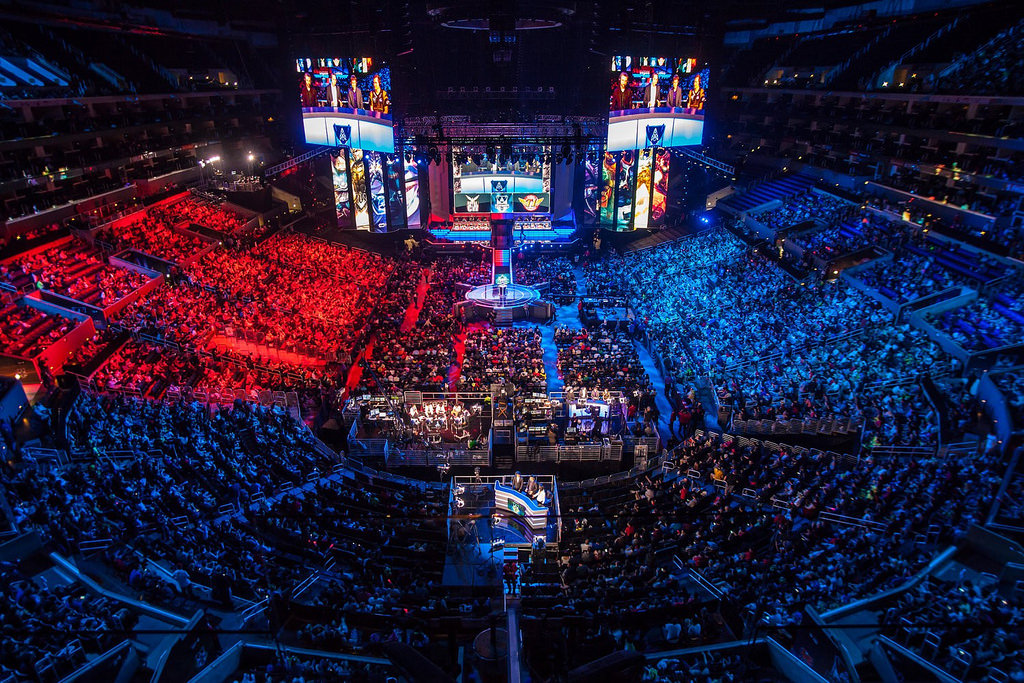So, is gaming a sport? It’s a great question.
If you were to look at viewer stats we think you’d be pretty happy with that definition.
Buy “Gaming” and “Esports” aren’t exactly the same are they? If you spin up a game of Cyberpunk 2027 – are you a competitive gamer? Well… maybe.. Considering there is an Esports league for Farming Simulator.
But the questions is quite an interesting one. At what point does playing a game become training for a sport?
Sports, traditionally, focuses on a skills or exercises that are performed at a high level for spectators. That is exactly what eSports is.
Compare a “First-Person Shooter”, FPS, and Football (soccer) and you almost have a 1 to 1 comparison. A simple game that can be understood, practiced and spectated at multiple levels of skill.
Where traditional sports focus on exercise routine, strategy and physical prowess; gaming focusses on mental skills, in-game mechanics and high level strategic thinking.
So why not consider it a sport? Well, some think that sport needs to be something physical. Something that you train your body to excel at. This is definitely a factor that needs to be considered vs gaming as most stereotypes will confirm that gaming is a low “effort” activity.
We think that’s why the term “esports” is important and needs to be clearly defined.
Let’s compare the definition of Sports and Esports:
Sports:
“Sport is a form of physical activity or game.[1] Often competitive and organized, sports use, maintain, or improve physical ability and skills. They also provide enjoyment to participants and, in some cases, entertainment to spectators.” – wikipedia
Esports:
“Esports (/ˈiːspɔːrts/ ⓘ), short for electronic sports, is a form of competition using video games.[1] Esports often takes the form of organized, multiplayer video game competitions, particularly between professional players, played individually or as teams.” – wikipedia
The important similarity between the two definitions is the competitiveness of the discipline. It shows that despite the physical differences, both types of sport provide an arena where competition and skill can be expressed and enjoyed. The philosophy of sport applies to both traditional sports and esports with players ability to train, express skill, show sportsmanship and compete and appropriate skill levels for awards and recognition.
As the world changes, more of the world gets online and, as we saw through the COVID-19 pandemic, people’s need for virtual entertainment increases it’s only a matter of time until Esports starts to become more mainstream and available.
As mentioned at the top of the article, viewership is obviously important when it comes to sport. The highest paid athletes and top paying teams are normally funded by advertising based on highest viewership. This also relates to a country or culture’s choice to put significance of gaming as a skill. Traditionally in the West, physical sports have been regarded much higher than “soft” sports like Chess for example.
That is almost entirely the reason why in Eastern countries like South Korea, Japan and China we see alot more dominance over Western teams across Esports. Gaming is part of Eastern culture, with some of the highest paid Esports Athletes taking home sums as large as $5.8million USD a year.
There is still a lot of room for improvement in the Esports scene and keeping consistent viewership will need to be a battle agains traditionnal esports. However, we believe that Esports Athletes should start to be considered alongside traditional sporting athletes when comparing sportsmanship, dedication, knowledge and training.
GGWP!

